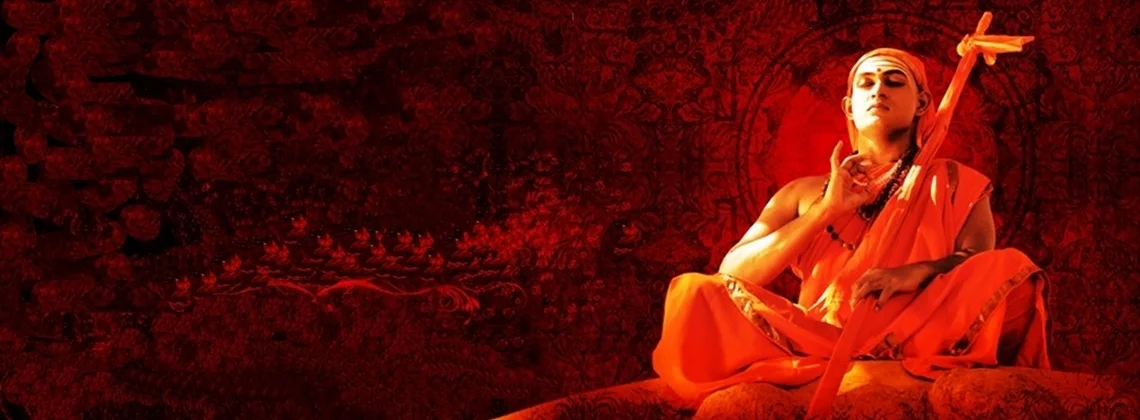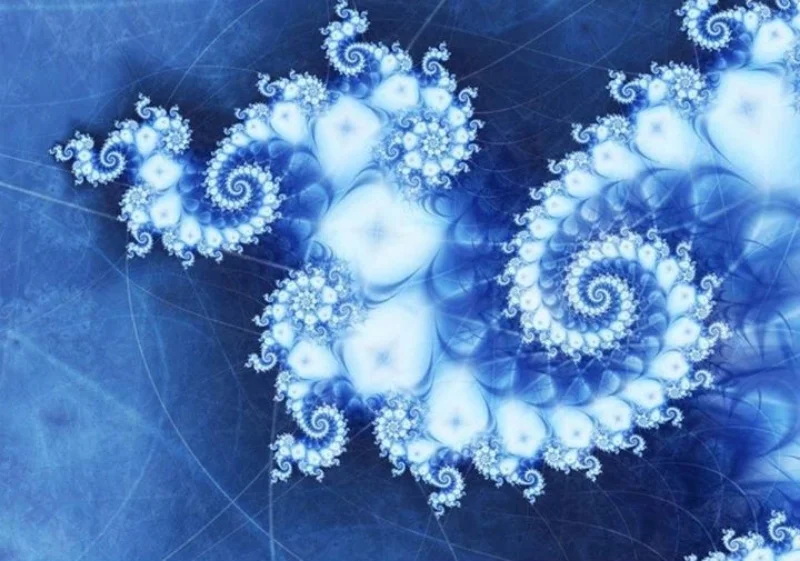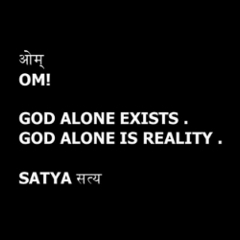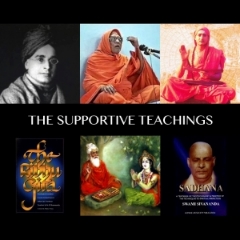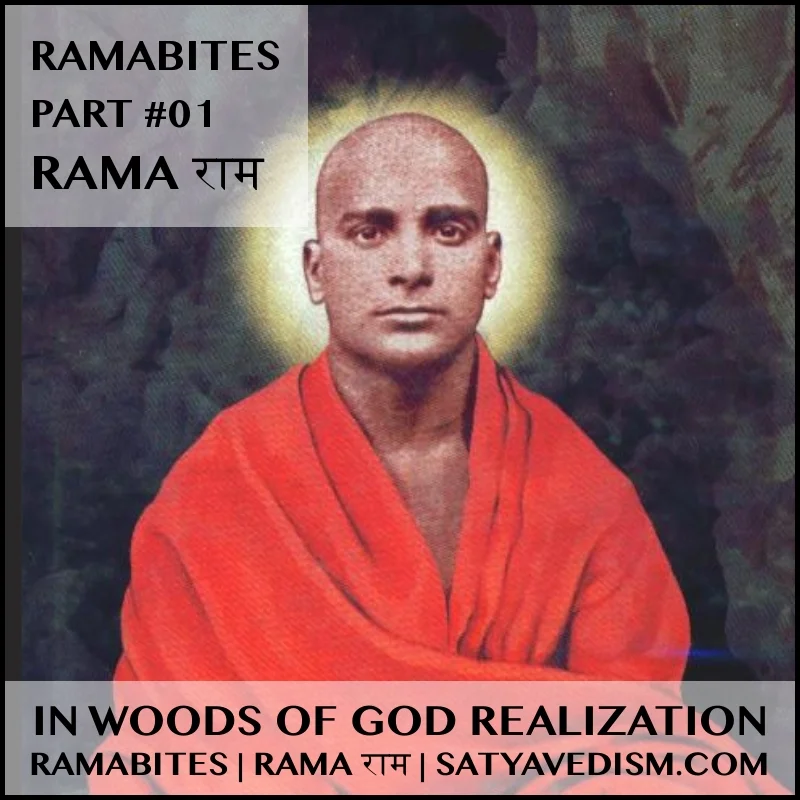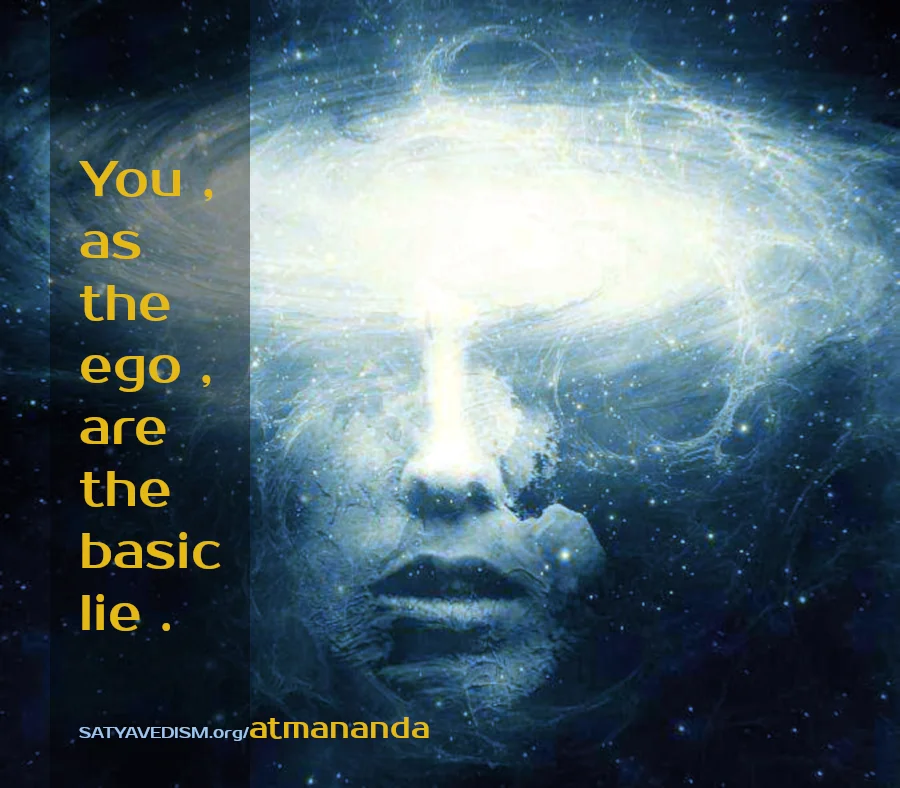CHANDOGYA UPANISAD | 8.7.1 | AMOETD
| | homeCHANDOGYA UPANISAD | 8.7.1 | SRI ADI SANKARACARYA
ya atma apahata-papma vijaro vimrtyur visoko vijighatso'pipasah satya-kamah satya-samkalpah , so'nvestavyah , sovijijnasitavyah sa sarvams ca lokan apnoti sarvams ca kaman , yas tam atmanam anuvidya vijanatiti ha praja-patir uvaca || 8.7.1 ||
|| VERSION 1 ||
1 . Once upon a time Prajapati said , " The Self which has no sin , no decrepitude , no death , no sorrow , no hunger , no thirst , has unfailing desires , unfailing will — That has to be known , That has to be enquired into for realization . One who , after knowing that Self , realizes It , attains all the worlds and all the desires . "
|| BHASYA || : It has been said , ' " Then , this one who is fully serene , rising up from this body ( and ) reaching the highest light , remains established in one's true nature . This is the Self . This is Immortal . This is beyond all fear . This is Brahman " . This Prajapati said ' ( VIII . 3 . 4 ) .
As to that , who is that fully serene one ? Or how is one to be known as one who , rising up from this body and reaching the highest light , remains established in one's true nature ? What are the characteristics of that Self in whose true nature one remains established ? The characteristics of the fully serene one are associated with the body . How can that be one's real nature which is different from this ?
These subjects have to be dealt with . Hence is started the following text . The story , however , is meant for revealing the injunction about the processes of receiving and imparting Knowledge , and it is meant also for the eulogy for Knowledge , as one might say , " This drink has been enjoyed by the Ruler " .
Yah atma apahata-papma vijarah vimrtyuh visokah vijighatsah apipasah satyakamah satyasankalpah , the Self which has no sin , no decrepitude , no death , no sorrow , no hunger , no thirst ; which has unfailing desire , unfailing will ; for the meditation on which , for the realization of which , has been mentioned the lotus of the heart ; in which are deposited true desires covered by falsehood ; as an associate of meditation on which celibacy was spoken of as a discipline ; for the attainment of the result of meditation on which , going out through the cerebral nerve was spoken of ; sah anvestavyah , That has to be known through the instruction of the scriptures and teachers , It is to be specially desired to be known ; ash vijijnasitavyah , That is to be enquired into for realization , That is to be made an object of one's own realization .
What will result from knowing It and enquiring into It for realization ? That is being answered .
Sah , one ; sarvan ca lokan apnoti , attains all the worlds ; ca , and ; sarvan kaman , all the desires . For one is the attainment of all the desires and all the worlds ; yah atmanam anuvidya , who having known this Self as described , through the means as instructed by the scriptures and teachers ; vijanati , makes It an object of one's own realization , ie the result comes in the form of becoming the Self of all . Prajapatih uvaca ha , Prajapati said this once upon a time .
This injunction ( in the two phrases ) " It is to be known " and " It is to be enquired into for realization " , is a regulative one ( for a perceptible result ) , and not a fresh one ( for apurva , an unseen result ) . The meaning is that It is to be known and enquired into in this way , because the result of knowing It and enquiring into It for realization is a perceptible one .
By saying again and again , " I do not find any enjoyment here " , the Upanisad will show that the result is the cessation of the contrary comprehension of the Self as characterized by the qualities of the body , on the comprehension of Its true nature . And this cessation is a perceptible result .
Hence it is proper to say that this injunction has a regulatory purpose , but it is not possible here to have a fresh injunction ( for an unseen result ) as in the case of Agnihotra sacrifice etc .
|| VERSION 2 ||
ya atma apahata-papma vijaro vimrtyur visoko vijighatso'pipasah satya-kamah satya-samkalpah , so'nvestavyah , sovijijnasitavyah sa sarvams ca lokan apnoti sarvams ca kaman , yas tam atmanam anuvidya vijanatiti ha praja-patir uvaca || 8.7.1 ||
1 . " That Self — which is free from evil , free from decrepitude , free from death , free from sorrow , free from hunger and thirst , with true desires and true volitions , — should be sought after , should be sought to be understood ; one attains all regions — and all desires , — who has sought to know Self and understands It " ; — so said Prajapati .
|| BHASYA || : That Self , which is free from evil , free from decrepitude , free from death , free from sorrow , free from hunger and thirst , with true desires and true volitions , — for the purpose of meditating upon which the white lotus of the Heart has been declared to be the place where it can be perceived , — wherein are contained all true desires concealed by the untrue , — as a concomitant with the meditation whereof Celibacy has been declared to be a means , — and for the knowledge of the result of whose meditation , the passing out by the Artery in the Head has been described , — this Self should be sought after , — should be sought to be known through scriptures and the Teachings of the Teacher ; and It should be sought to be understood , — more specifically understood , ie should be realised within oneself .
It is next explained what would follow from the said seeking and understanding : One attains all regions , and all desires , — who has sought to know that Self — in the prescribed manner through scriptures and the teachings of Teachers , — and understands It , realised It within oneself . So that this — attaining of all regions and becoming the All-Self are the results . — So said Prajapati .
The two expressions " should be sought to be known " and " should be sought to be understood " contain restrictive , — not originative — injunctions ; the sense being that " It is to be sought to be known , — and sought to be understood , — in this particular manner " ; that such is the restriction implied follows from the fact that both the acts — the seeking to know and seeking to understand , — serve perceptible purposes ; that this is so is going to be shown repeatedly later on , in the texts , " I see no good in this " etc , etc ( Section 9 , below ) .
When hitherto the Self has been known through the qualities of the Body , the sense-organs etc , — if and when its own real form causes to be understood , — it leads to the perceptible result in the form of the cessation ( disappearance ) of the preceding wrong notion ; for this reason the injunction in question should be taken to be a restrictive one , and an originative one , like the injunction of Agnihotra and other acts .
|| UPADESA SAHASRI : A METHOD OF ENLIGHTENING THE DISCIPLE || I.I.6 || COMPLETE AMOETD SERIES ➤➤ | INTRODUCTION ➤➤ ||
|| THIS SCRIPTURE SERIES SOURCE || ➤
|| 1 || http://www.SATYAVEDISM.com ||
|| 2 || http://bit.ly/SRIADISHANKARA ||
http://www.SATYAVEDISM.com/shankara/amoetd/
SOURCE | SATYAVEDISM.ORG
